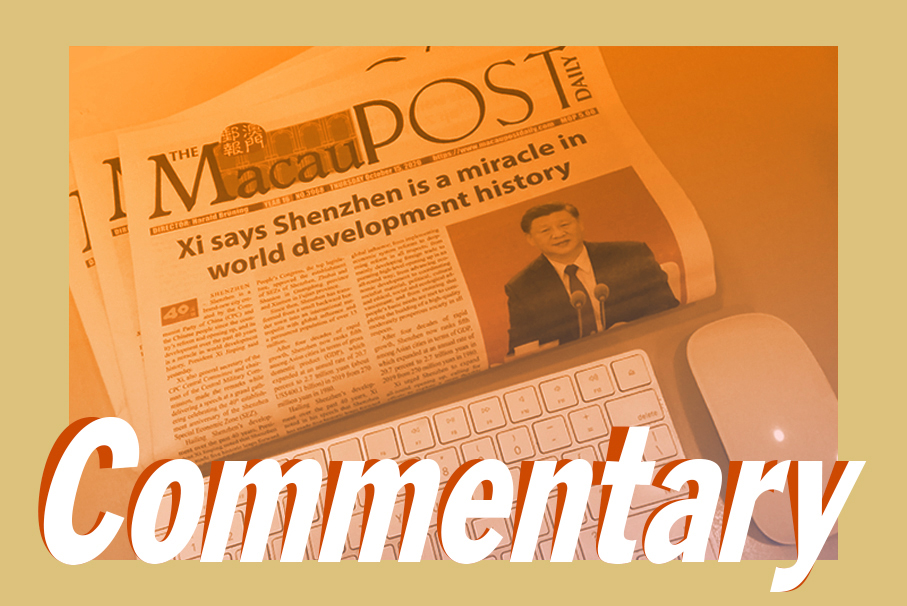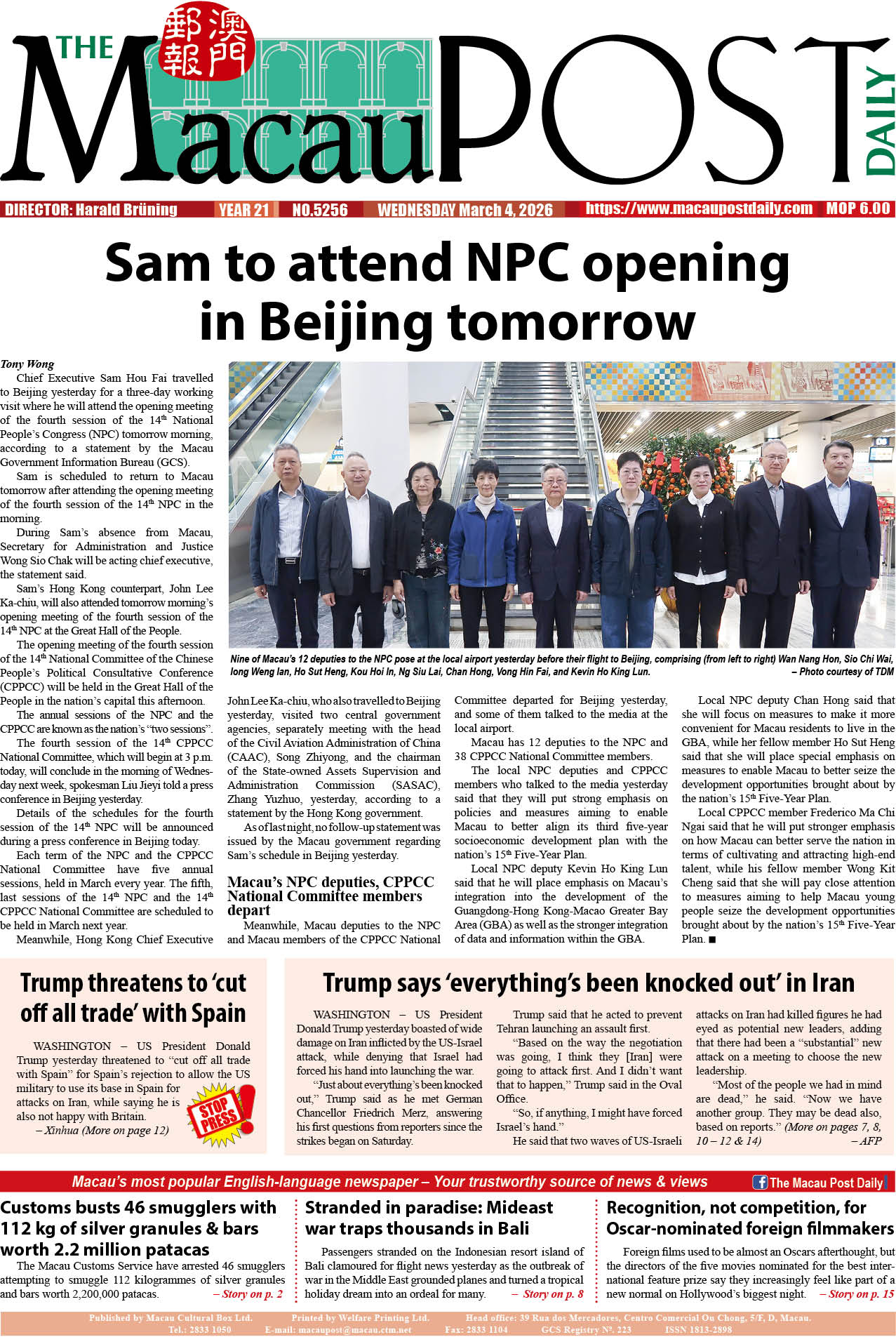The State Council has released its 5th National List of Representative Items of the Intangible Cultural Heritage of China, and as far as Macau is concerned Macanese cuisine, Patuá plays and the Tou Tei (“Earth God”) belief and customs were selected, a Cultural Affairs Bureau statement said yesterday.
The statement said that the three items represent Macau’s blend of Western and Eastern cultural heritage. The listing enhanced the recognition and protection of these three kinds of intangible cultural heritage in Macau.
According to the statement, Macanese cuisine started in the 16th century when the people started to cook dishes using Portuguese recipes and ingedients from Europe, Asia and Africa. The statement noted that Macanese cuisine represents Macau people’s unique eating culture, and also shows that Macau has been part of the traditional Maritime Silk Road.
Macanese cuisine's national recognition as intangible heritage was formalised just a few months after the passing of Aida de Jesus, endearingly known by her legion of friends and admirers as Dona Aida, who was generally regarded as the doyenne of one of the world's oldest fusion cuisines. Dona Aida died at a local hospital at the age of 105 in March.
The statement also pointed out that Patuá plays depict Macau’s uniqueness and traditions. The statement said that the plays in the local Creole language represent Macanese people’s love for performing arts, using the stage as a platform to discuss social topics and reflect public opinion.
In 2009, the new edition of UNESCO’s Atlas of the World’s Languages in Danger classified Patuá as a “critically endangered” language.
Patuá plays have been regularly performed by a local group of amateur actors since the 1990s known in Patuá as “Dóci Papiaçám di Macau” (“Macau’s Sweet Language”) which was launched, among others, by Julie de Senna Fernandes (who passed away in 2005) and has been headed for many years by lawyer-cum-playwright Miguel de Senna Fernandes.
The statement underlined that the Tou Tei belief and customs originated in Macau a few hundred years ago.
According to the statement, it is a belief that aims to keep people safe, neighbours harmonic, and families prosperous. The statement also noted that for hundreds of years local people have worshipped Tou Tei in different ways and slowly it became a local custom. The statement said that on the second day of the second month of the Chinese Lunar Year believers customarily host a celebratory event about the birth of Tou Tei and gather neighbours to celebrate together. The statement said that the Tou Tei belief and customs fully demonstrate the importance of Chinese culture in Macau.
Tou Tei is the God of Earth, based on ancient myths.
The statement stressed the fact that the three kinds of intangible cultural heritage have been selected by the State Council in Beijing recognises Macau’s diverse cultural heritage. The statement noted that the State of Council has been listing a number of the nation’s intangible cultural heritage items since 2006, such as Cantonese opera and herbal tea.
The bureau pledges that it will continue to identify, study and research the local cultural heritage in order to set up a promotional platform so that the world can better understand Macau’s cultural uniqueness.
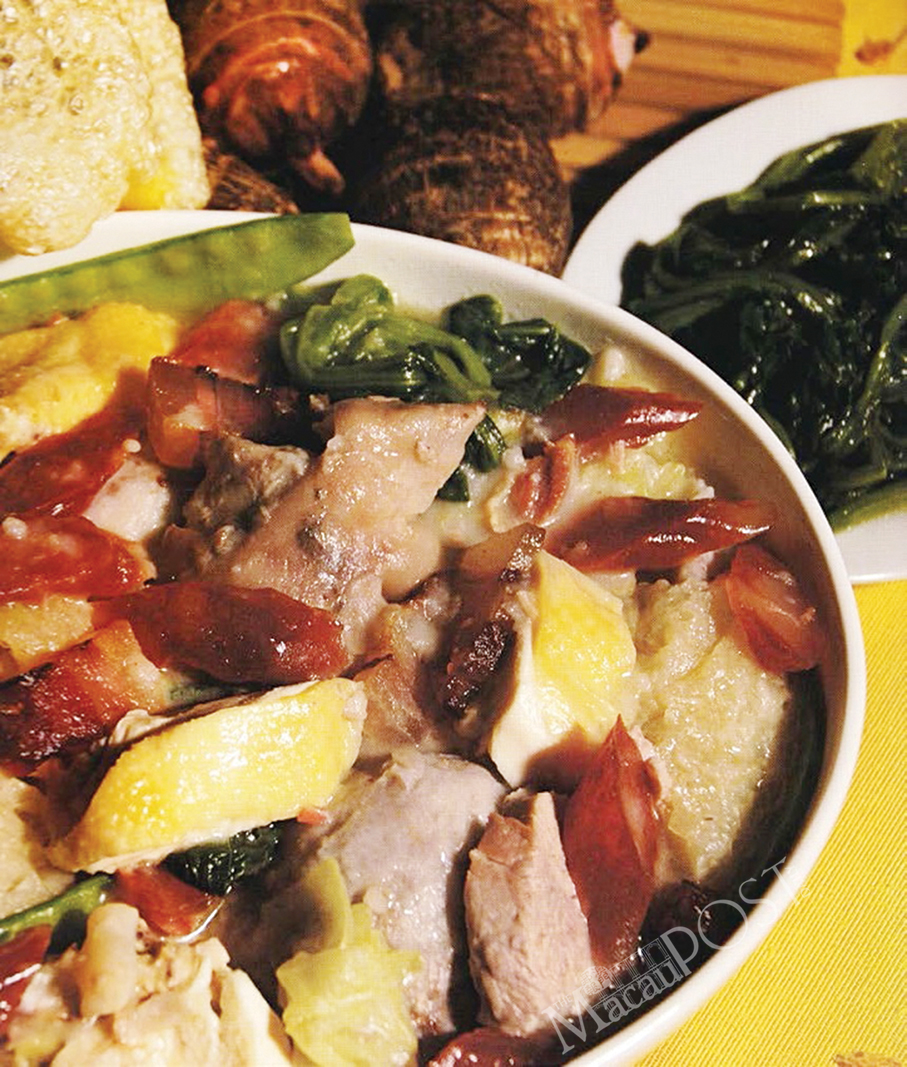
This undated handout photo shows a dish of traditional Macanese cuisine.
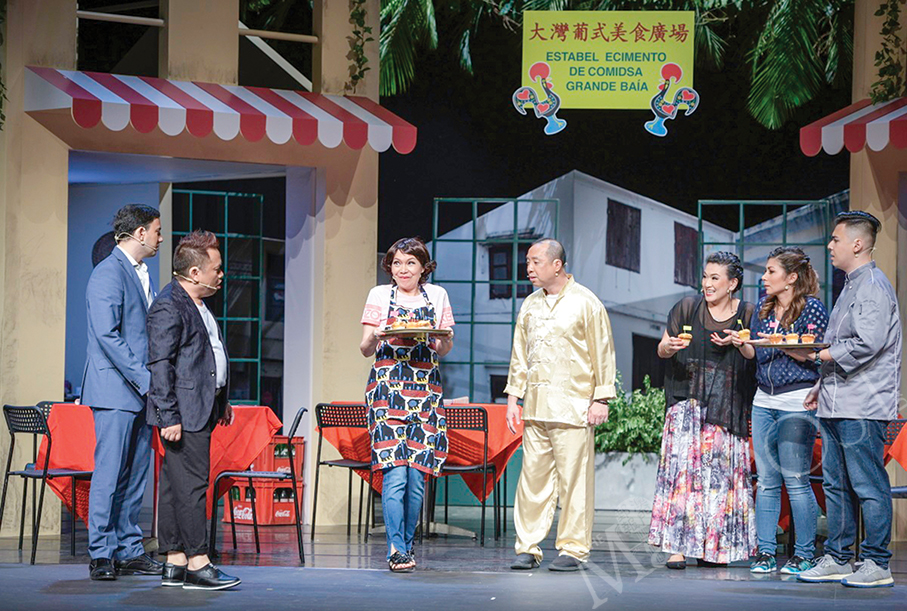
This undated handout photo shows a scene from a Patuá play.
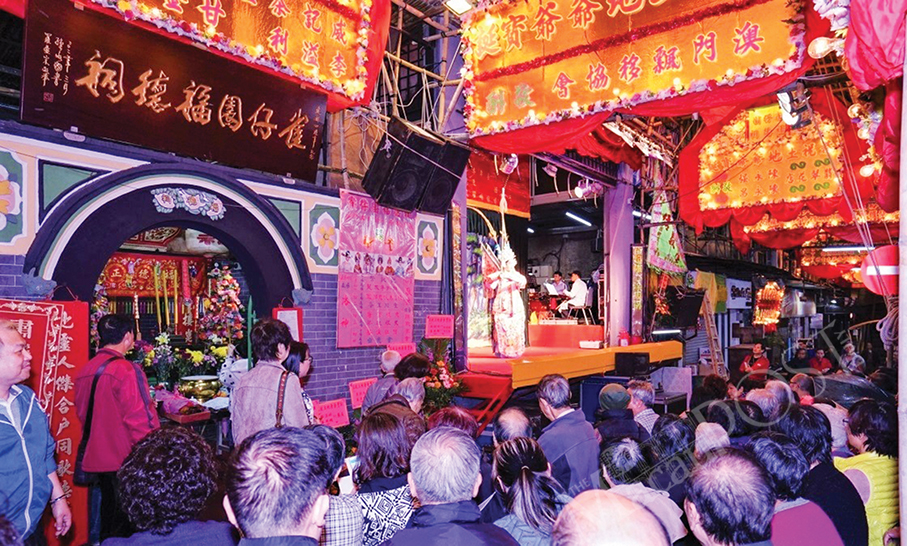
This undated handout photo shows a celebration of Tou Tei’s birth. Photos: Cultural Affairs Bureau (IC).







